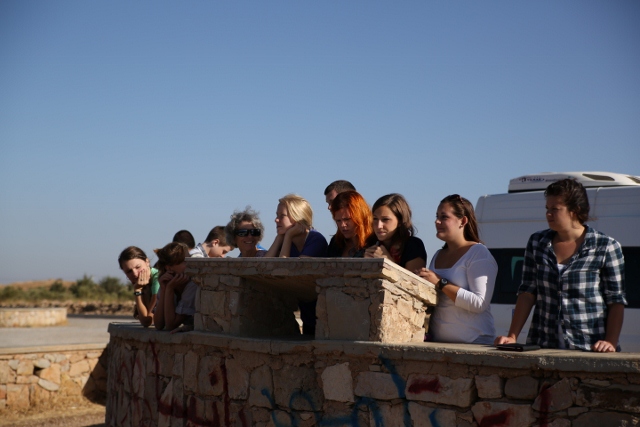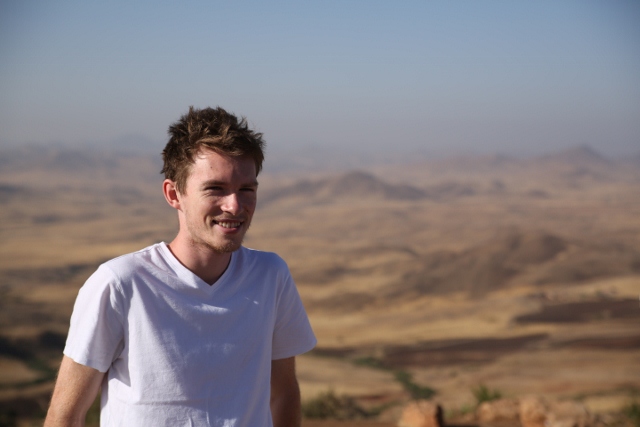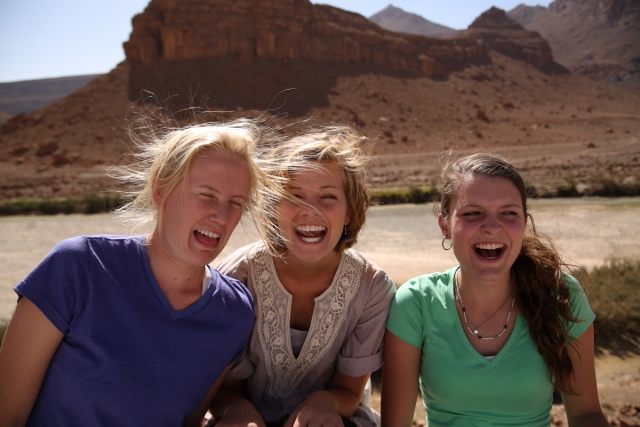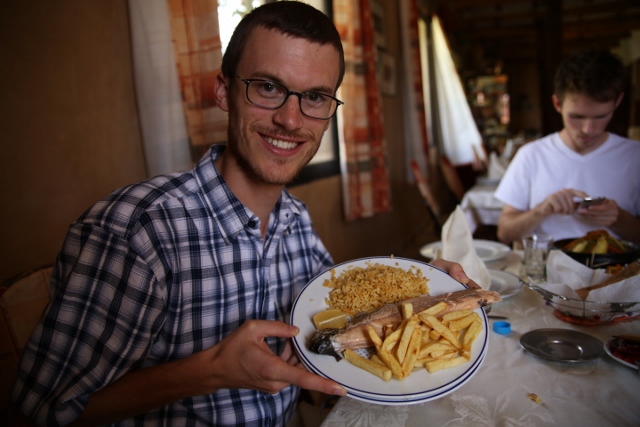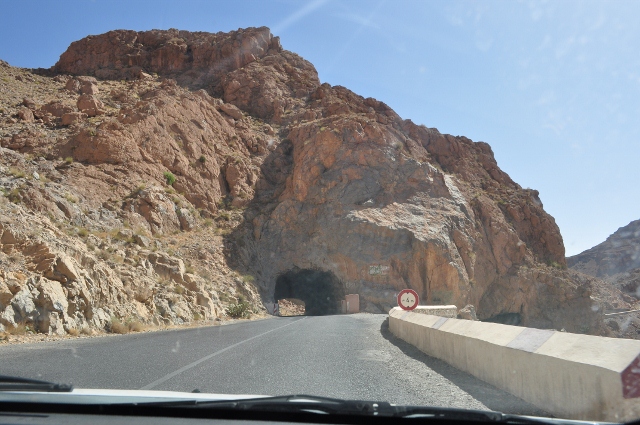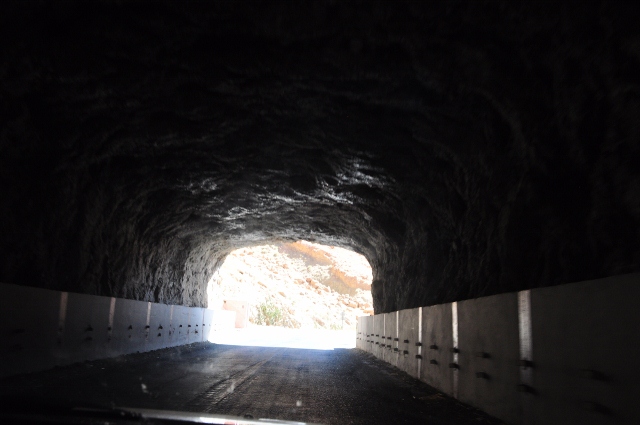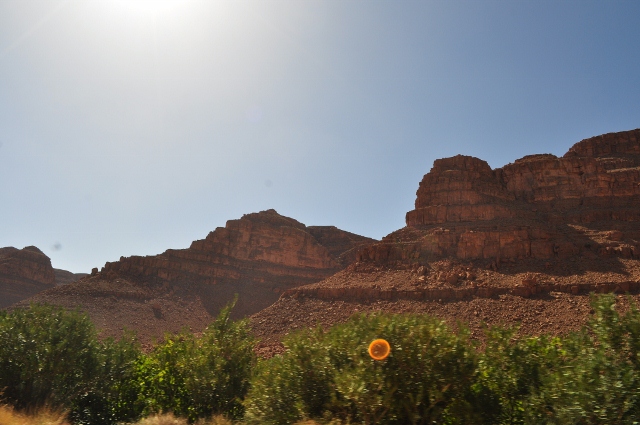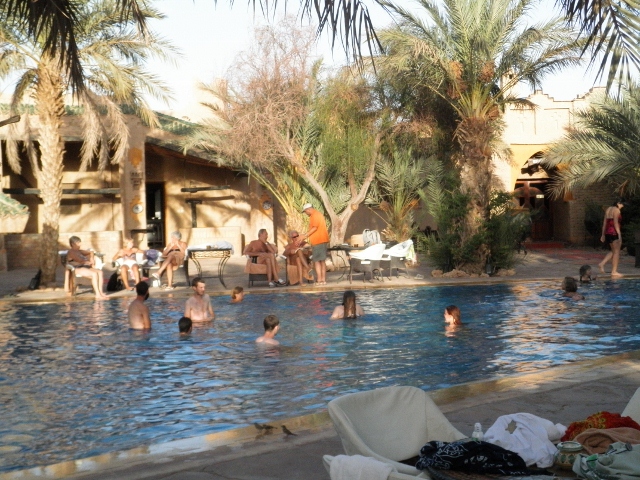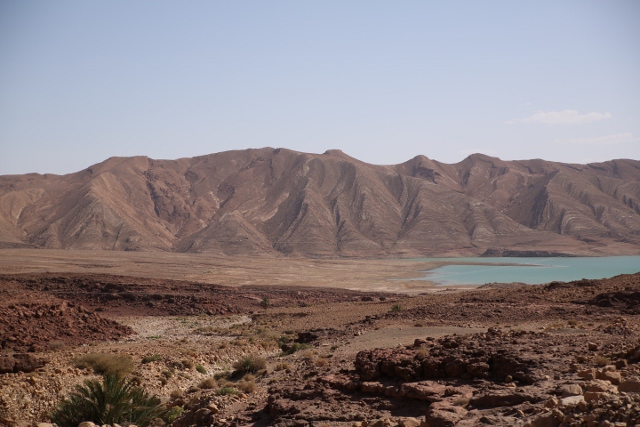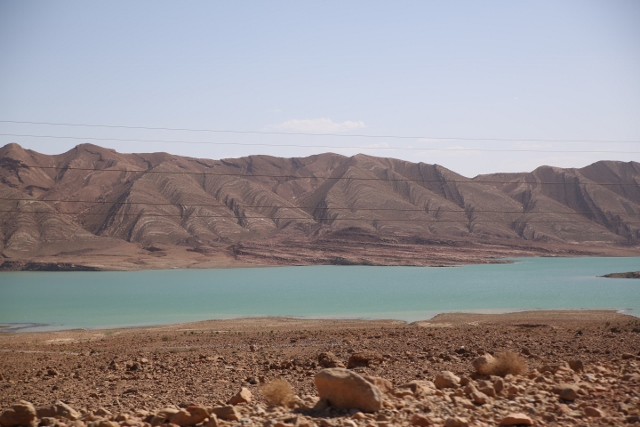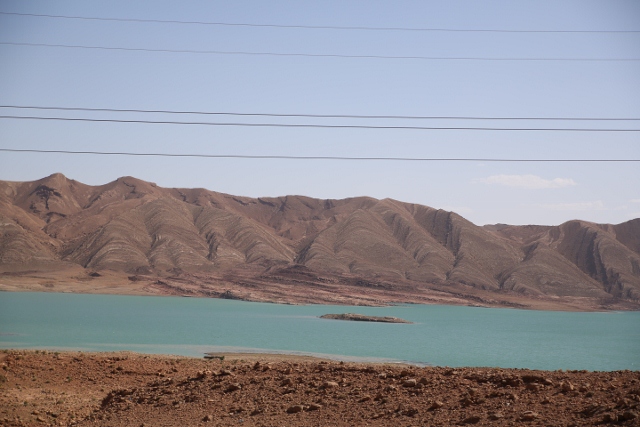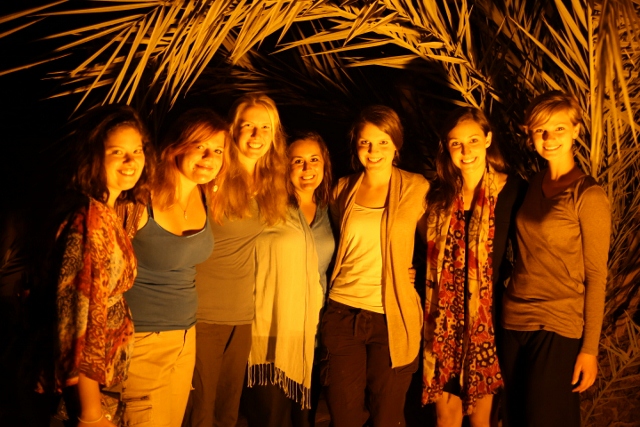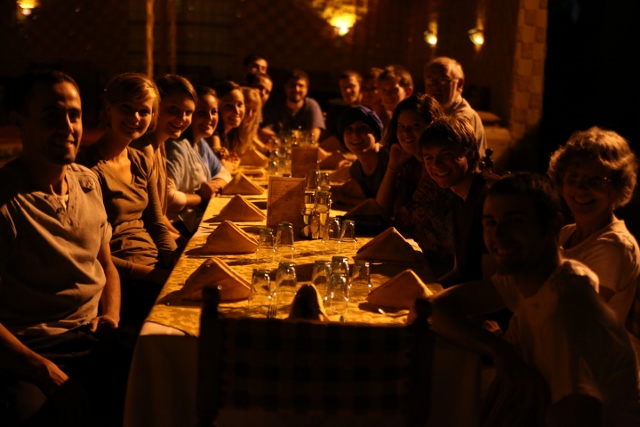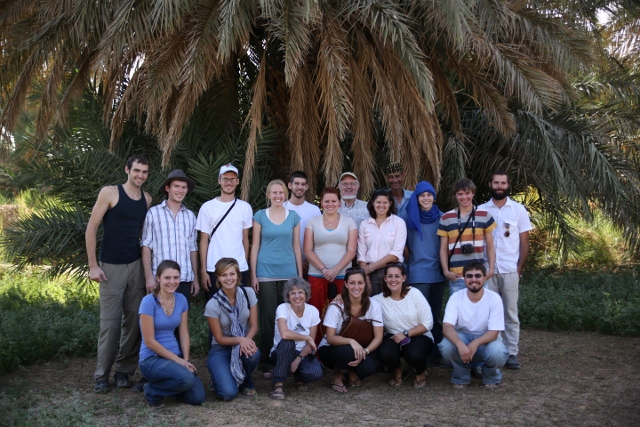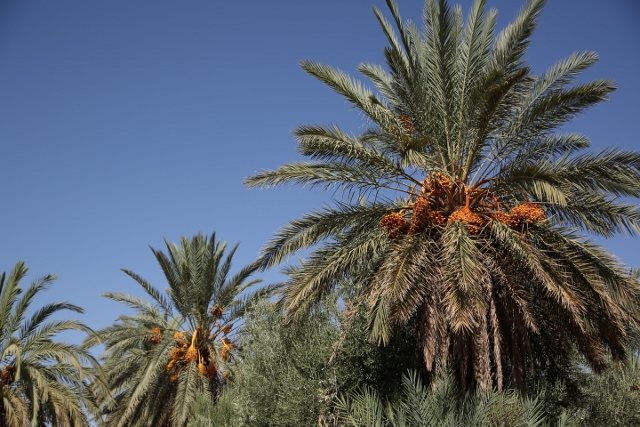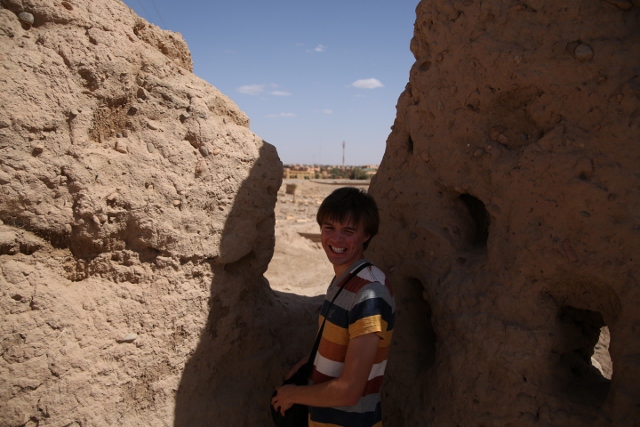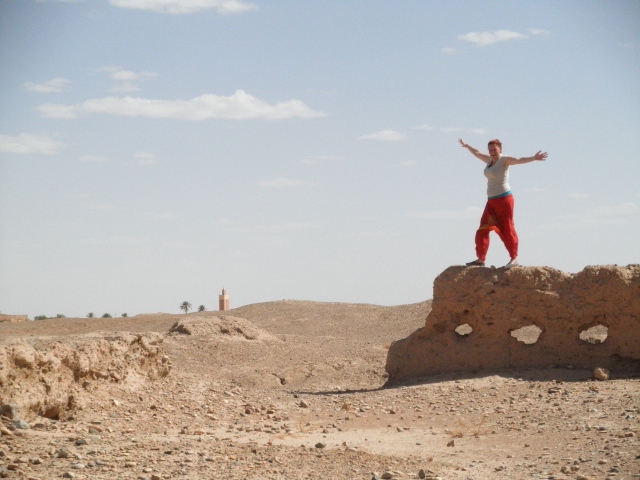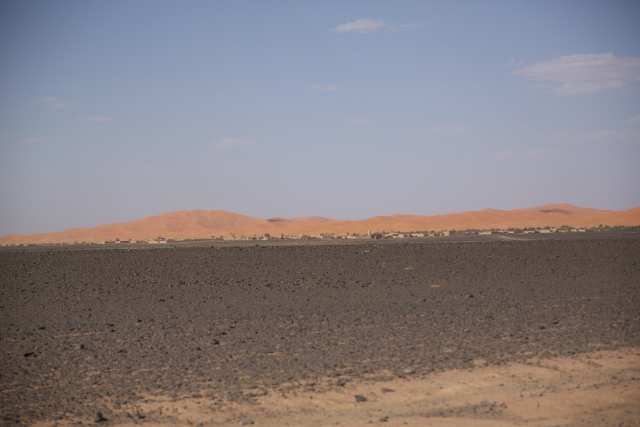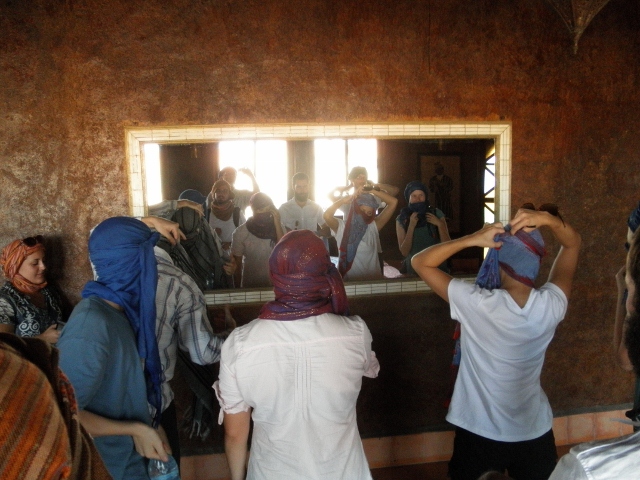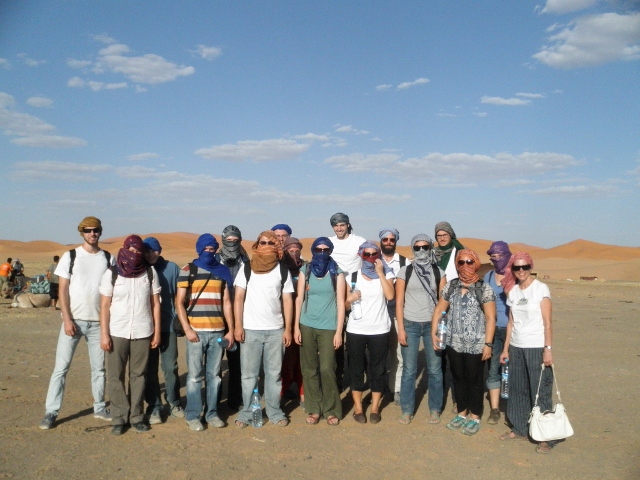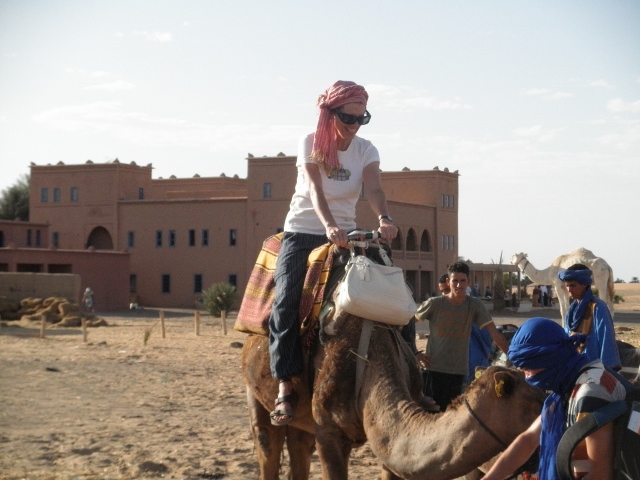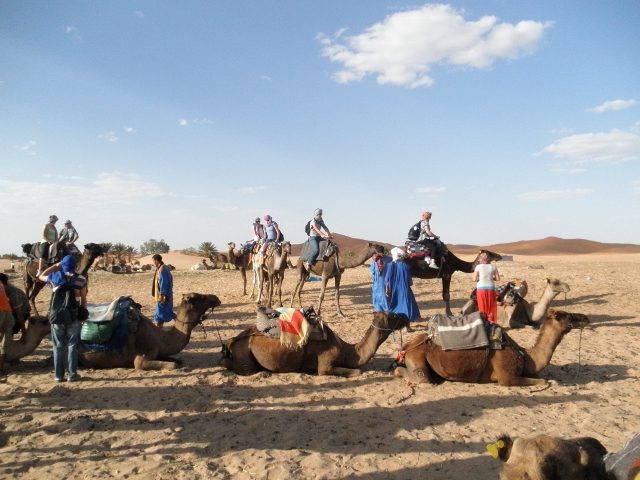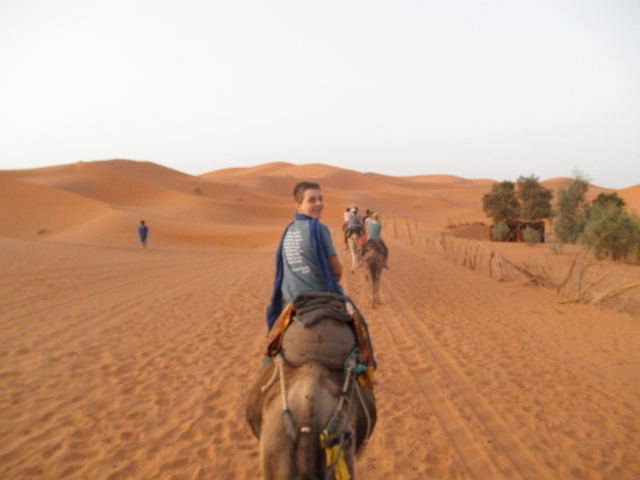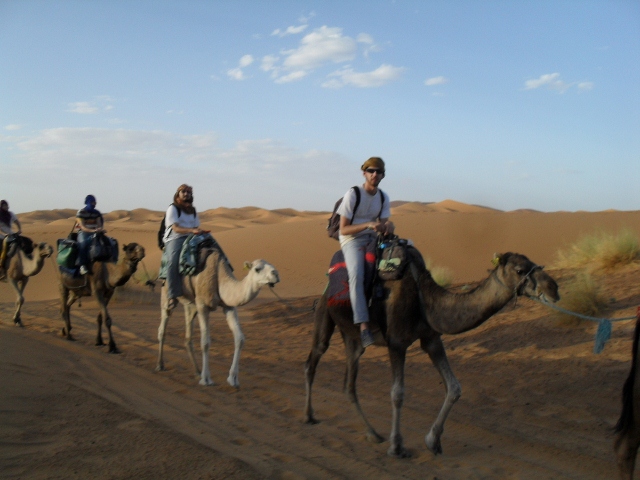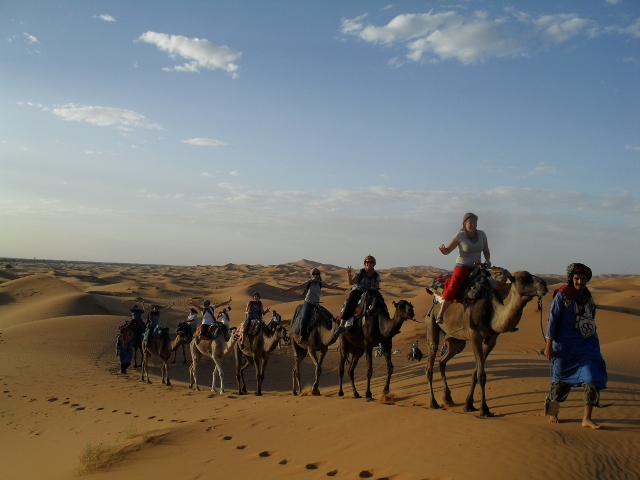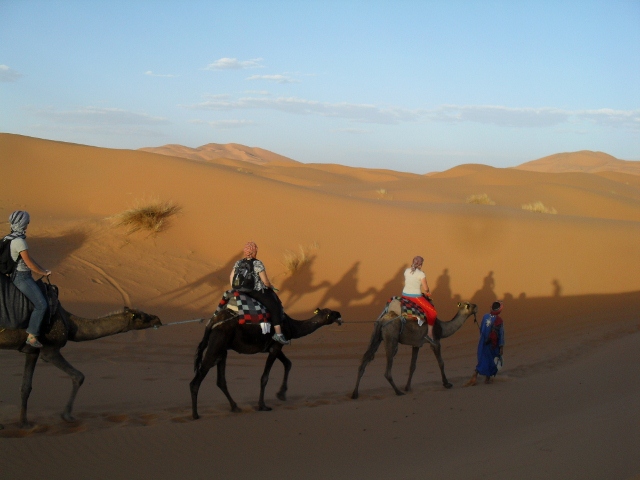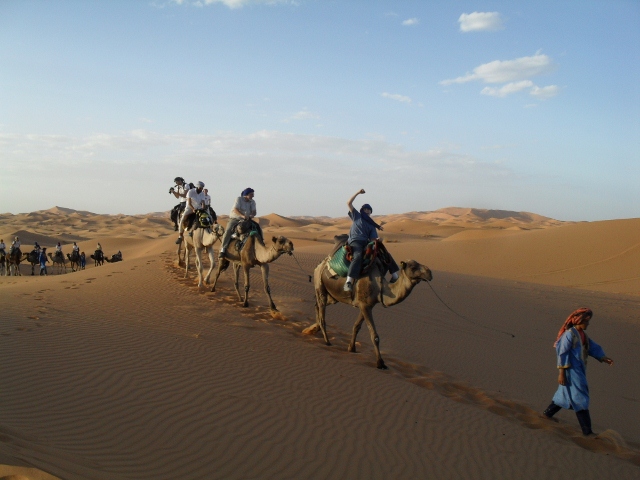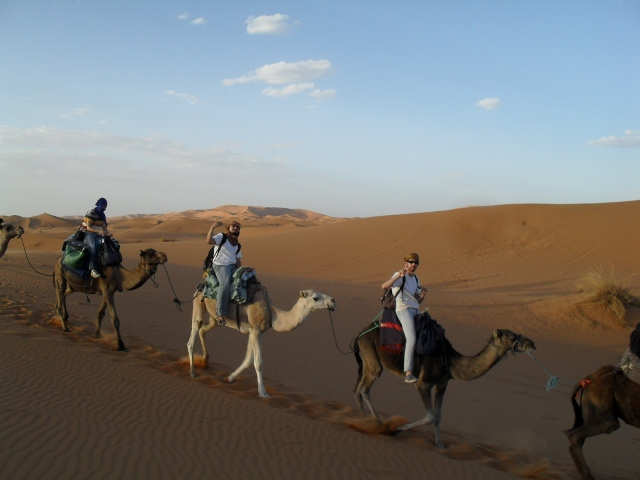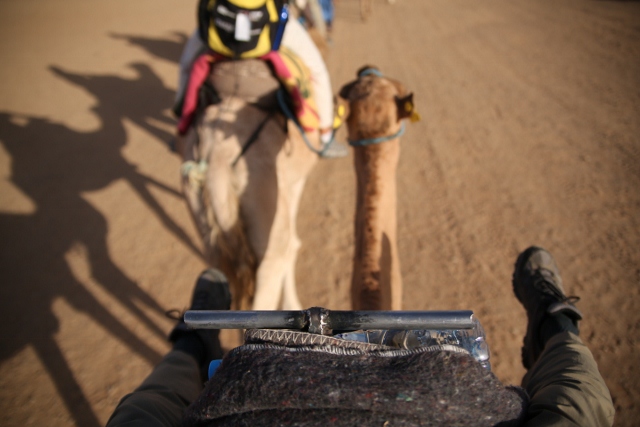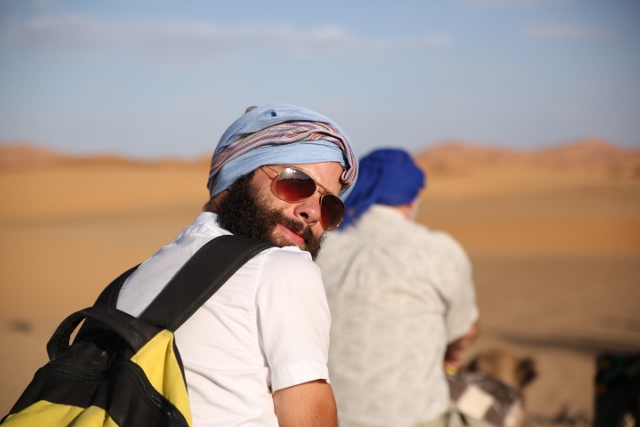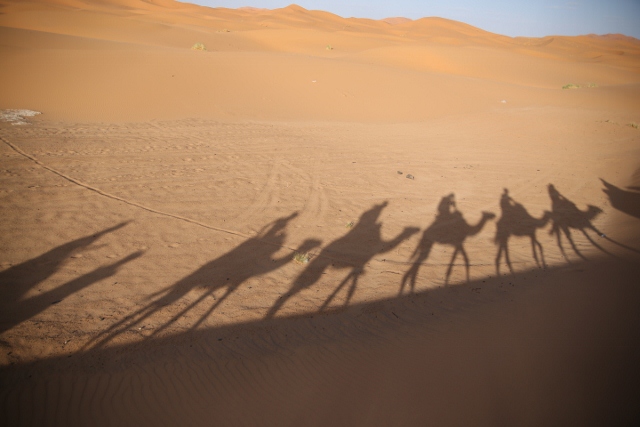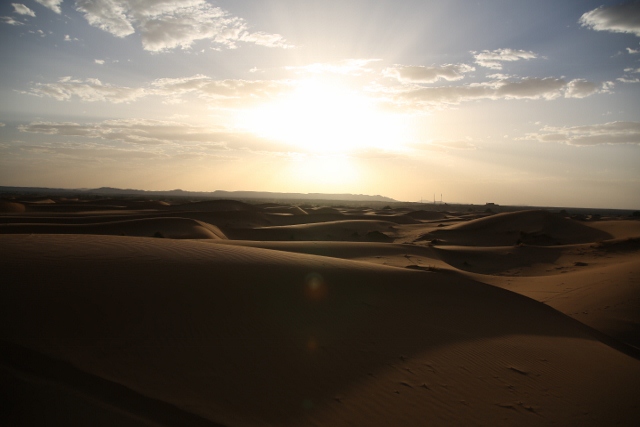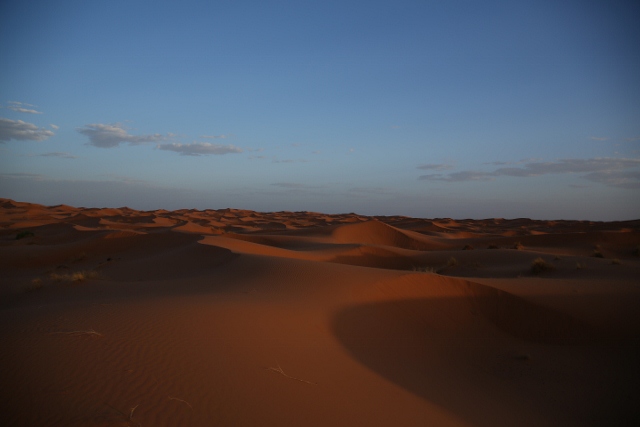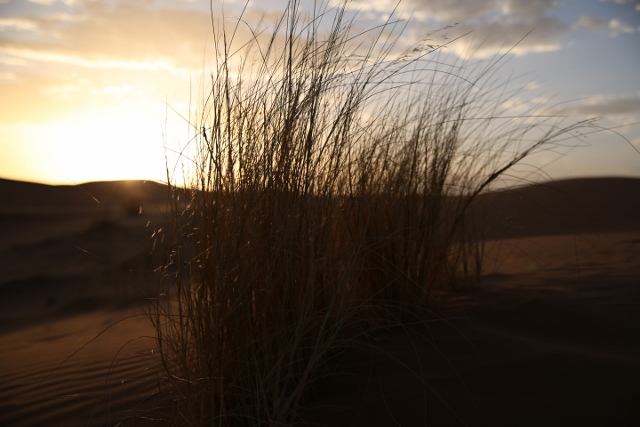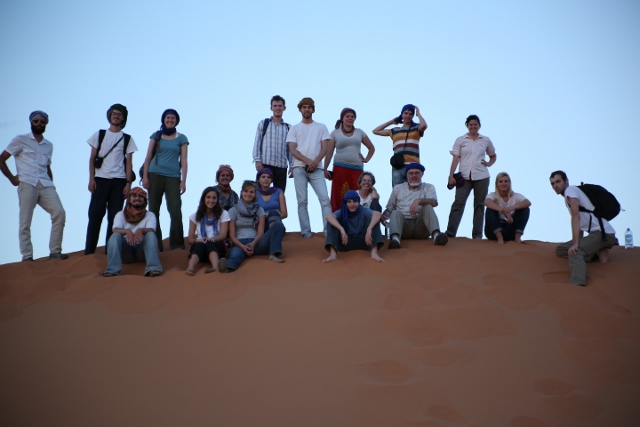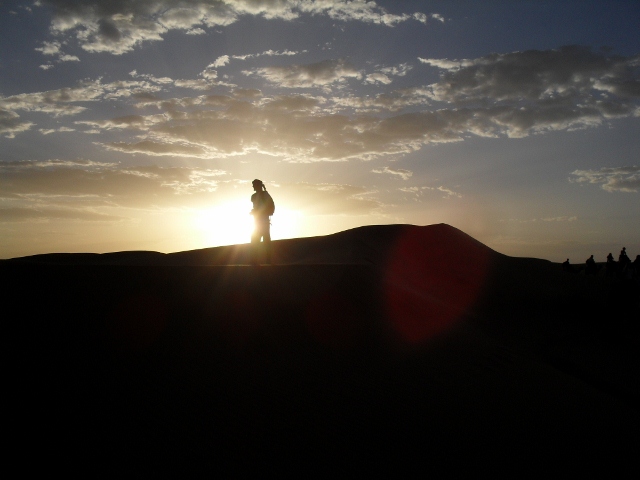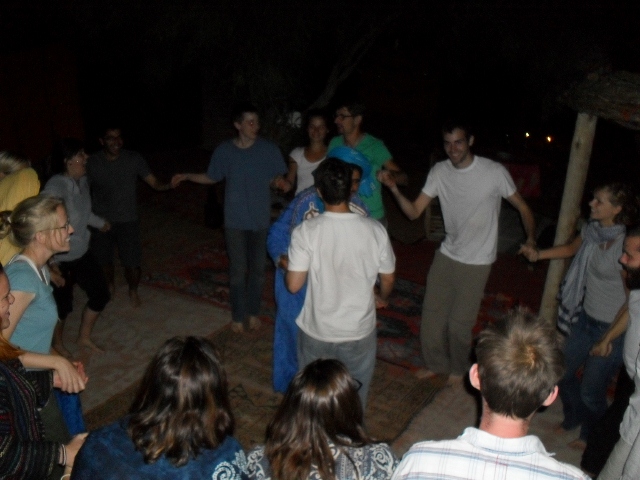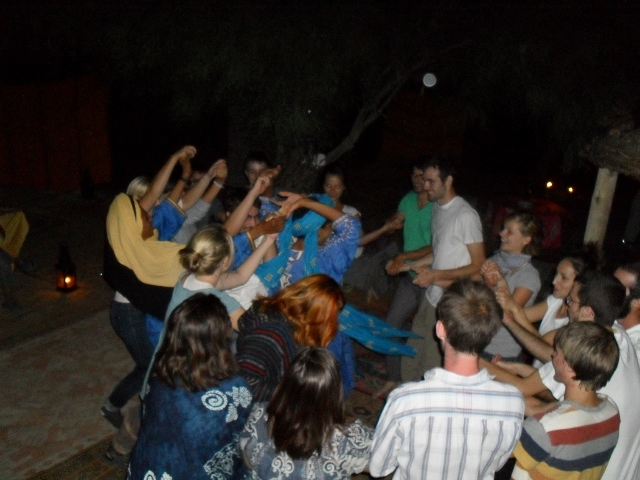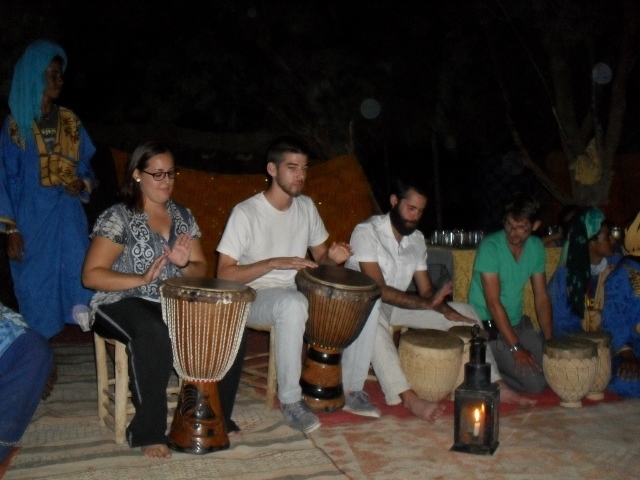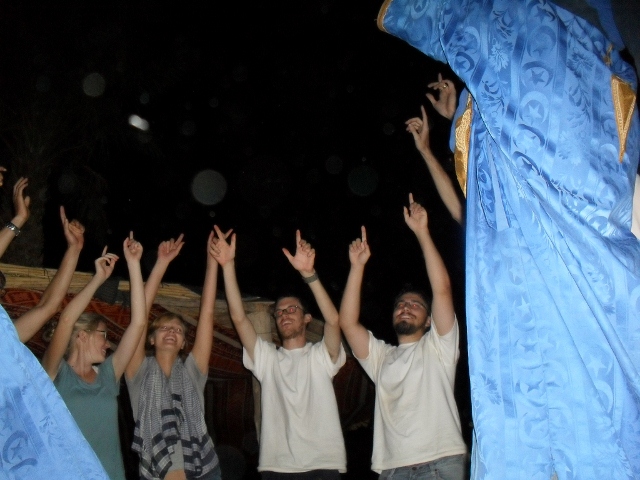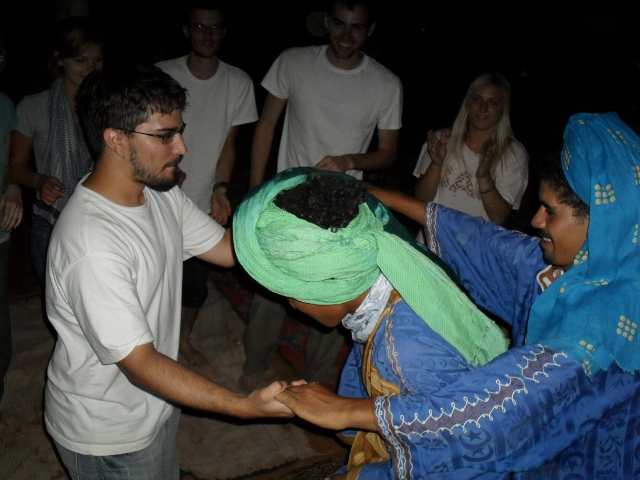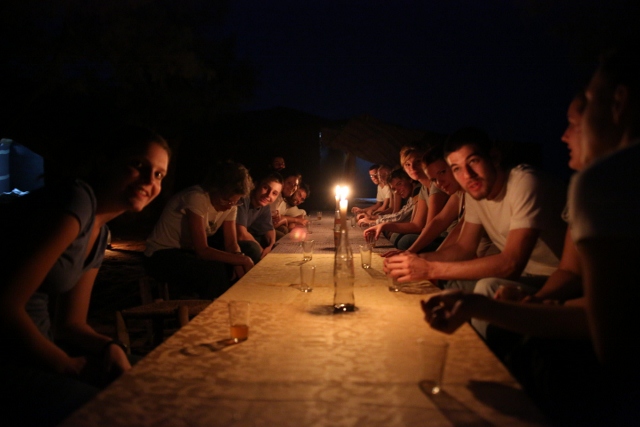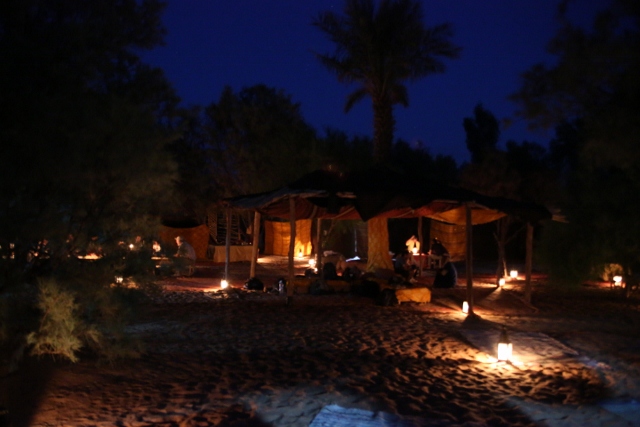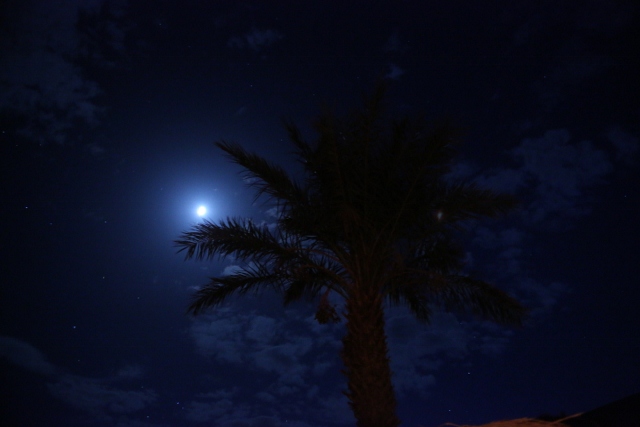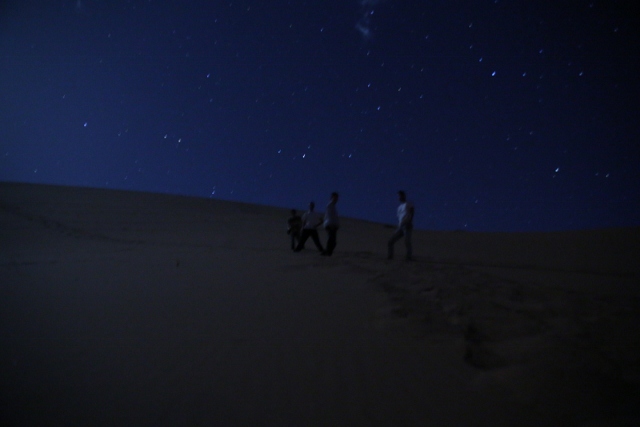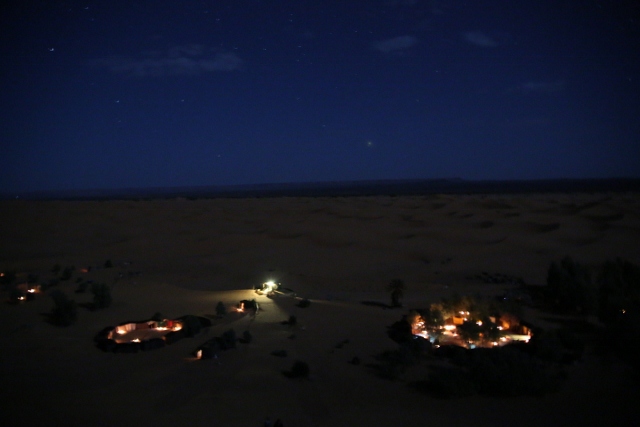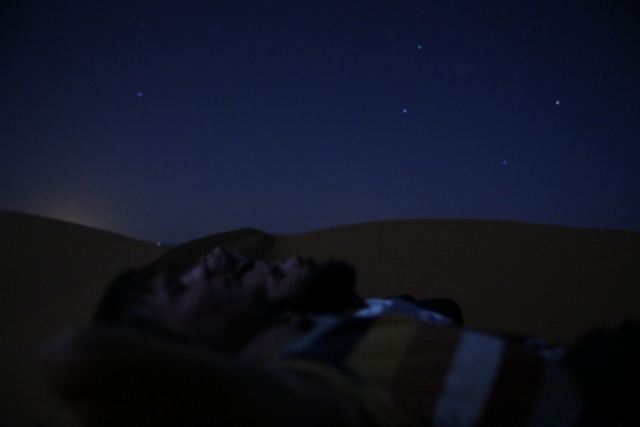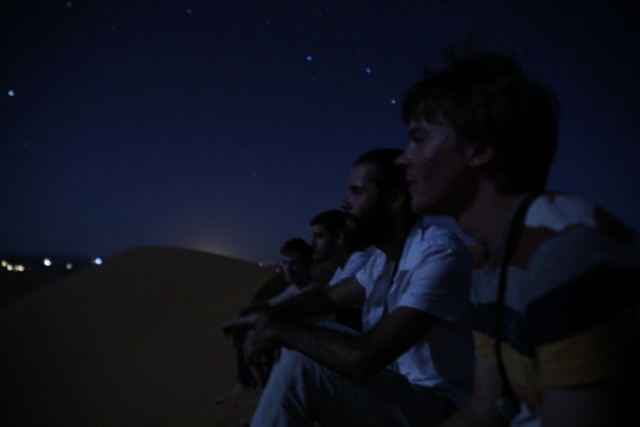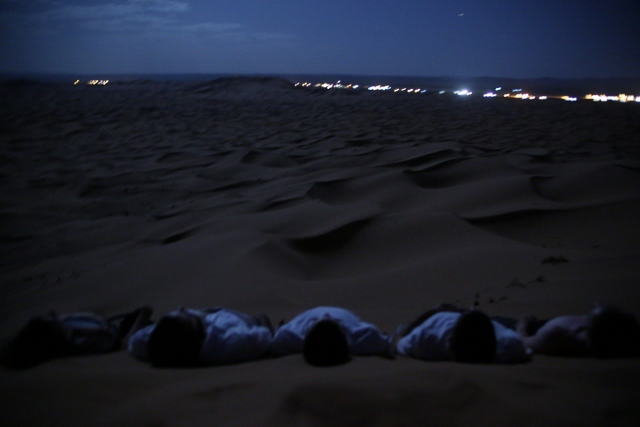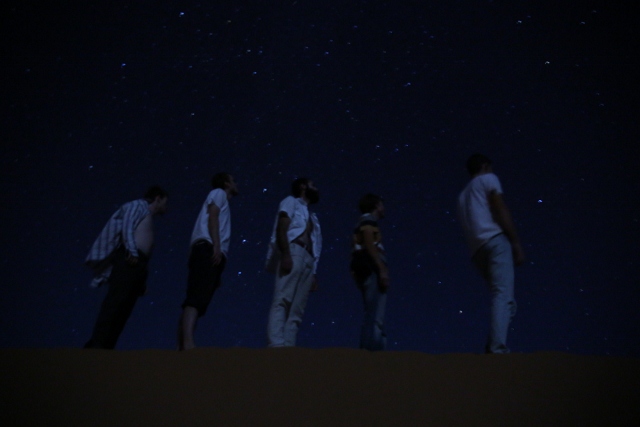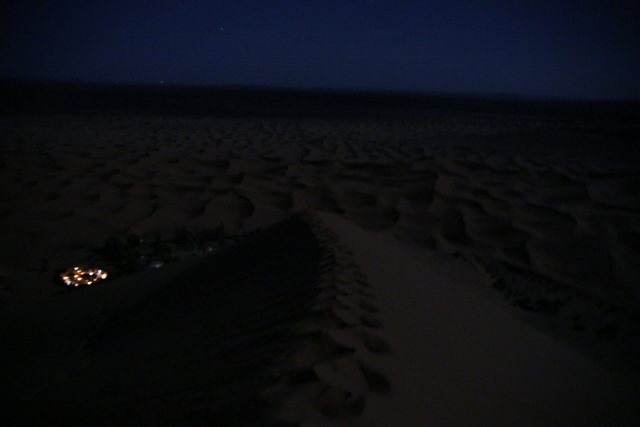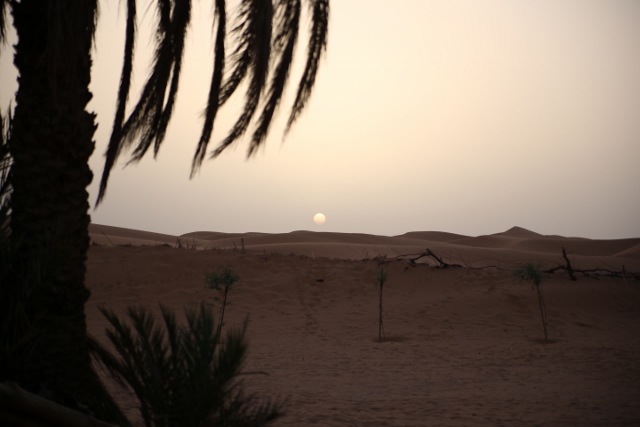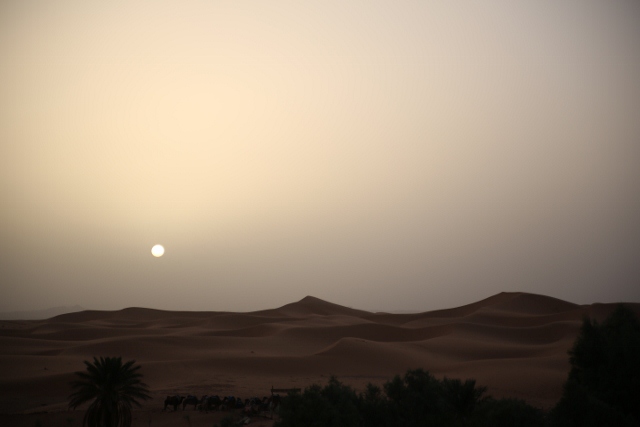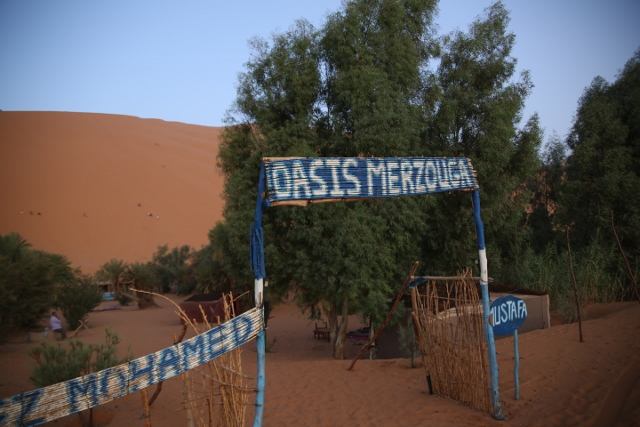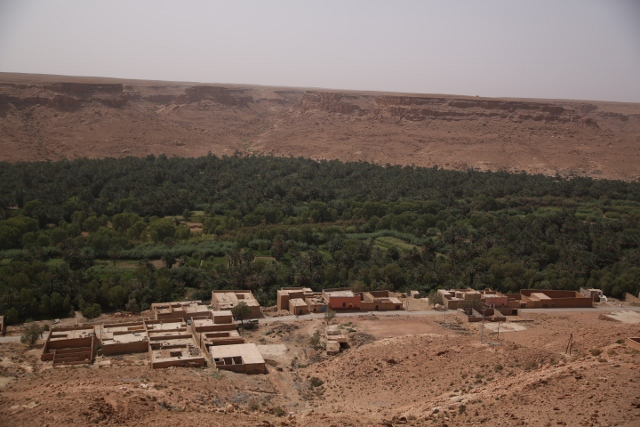The Sahara
“The sky was as full of motion and change as the desert beneath it was monotonous and still,–and there was so much sky, more than at sea, more than anywhere else in the world. The plain was there, under one’s feet, but what one saw when one looked about was that brilliant blue world of stinging air and moving cloud. Even the mountains were mere ant-hills under it. Elsewhere the sky is the roof of the world; but here the earth was the floor of the sky. The landscape one longed for when one was away, the thing all about one, the world one actually lived in, was the sky, the sky!”
-Willa Cather
How can we possibly convey the amazing experience of our recent journey into the desert? For most of us, before this trip the Sahara was little more than a metaphor – albeit a powerful one: the epitome of heat and aridity; a vast expanse of shifting sand dunes and lifeless void; of wind-whipped caravans and wildish nomads. And yet what we encountered in our humble incursion was something quite different. Harsh in its relentlessness, perhaps. But teeming with flora and fauna. Clumps of green wherever water lingers, deep and hidden. Nocturnal scurrying of mammals, reptiles, insects and birds – whose riotous tracks on every sandy slope tell a story – (what happens in the desert stays in the desert). It is a wholly OTHER place where the usual impediments that obscure our insignificance on this lonely planet in the vast expanse of the cosmos are removed. When the sun enters its subterranean passage on the far Western edge of the world, followed by the impossibly luminescent moon, we see that we are not below the stars, but among them, of them, one with them.
Our attempts to describe this distant landscape of our beloved Morocco, inhabited since the beginning of time by the resilient Amazigh (Berber) people, will be sadly inadequate – though we will try. Let it suffice for now to accompany us on our journey, catching glimpses of what we experienced through the eye of the camera. Trace the steps of our journey as we board our little bus in Meknes and travel east and south into the Middle Atlas mountains, stopping in Azrou only for fuel. Climbing on switchbacks into the higher elevations we catch sight of the forest monkeys that we will return to visit this coming weekend. It will be several hours before we stop for lunch outside Midelt, in the midst of a plentiful apple harvest. Beginning our descent out of the mountains, we cross back and forth through the Ziz valley and its life-giving wady that greens its banks between the barren cliffs. On the outskirts of Errachidia we gasp at the sight of the Hassan Addakhil reservoir, which serves the thirsty city. We push on to Erfoud, where the good earth provides countless varieties of date palms – visibly ready for harvest. We stop at a farm and are treated to a taste of this bounty.
We stay the night in the unexpected luxury of an Amazigh Kasbah. As we peel the bus off our backs and stumble into the carpeted lounge, we are greeted by an enthusiastic local musical troupe. In the courtyard is a mirage – no it’s a pool (Ps 107:35)! Rubbing our eyes in disbelief we stumble on towards our rooms, equipped with gushing showers and (shshshsh) <climatizasion>. By the time the evening meal is announced we have achieved full trans-cultural accommodation and the buffet of Moroccan delicacies seems entirely à-propros. Worthy or not, we sleep the sleep of the just and wake up ready for the Sahara.
Travelling toward Merzouga the date palms give way to a bleaker landscape, eventually covered by volcanic stones as far as the eye can see. The highway gives way to a track of dubious navigability, and our trusty bus delivers us finally – shaken not stirred – into the hands of our camel handlers on the backside of the Hotel Timbuktu. After a round of piping hot mint tea (!) we don our scarves, grab our water bottles and proceed to the camel staging area. We mount the kneeling, gentle beasts and are thrust in sequence onto the swaying backs that will be our home for the next several hours. The caravan lurches forward, and as we squirm to find that one comfortable position (it does not exist), we are gripped with the awesome (every descriptor is a cliché, so why not use the common ones) undulations of a sea of sand from hump height. Moving slowly, methodically through and around and across and down the dunes, we inch towards our camp, said to be on the far side of a distant hill. After an hour the sun drops to the horizon; we stop to rest and savor that unique sunset. Then back on camelback until we arrive at dusk at a circle of tents, a circle of light, a circle of Amazigh hospitality. How far had we come? Five kilometers? Ten? A hundred? A (typically) tasty meal, followed by desert song and dance; our hosts invite us to take up the instruments; so we drum and clang, casting shadows by the light of the waning moon. Then the lights of distant worlds begin to emerge and take over the boundless sky. The older crowd prepares to retire, but the young are drawn, mesmerized, up the arduous slope of the dune-hill-mountain at the back of the camp. What they record on its distant spine is a revelation. Time stands still, and the inspired incipit of Psalm 8 becomes our motto.
In the morning we rise to greet the sun, having completed its subterranean passage back to the east, no less impressive for the haze that hangs about the sandy slopes. See that distant ridge? That’s Algeria! The camels are ready to return us to Merzouga despite the lingering soreness of backs and backsides. The hearty Berber breakfast that had preceded our sendoff was no match for the feast provided by the Sahara in the hour before the heat returned. We saw with new eyes that life clings and thrives and cycles here as well. To be able to venture to this place under the watchful care of our young guides was a privilege – and we knew it. More than one prayer of thanksgiving was offered, wide-eyed, to the Creator of all.
The trip back was long and hot. Returning to Meknes in the early evening, with host families waiting to receive us and hear about our adventures, we realized – we’re home!
